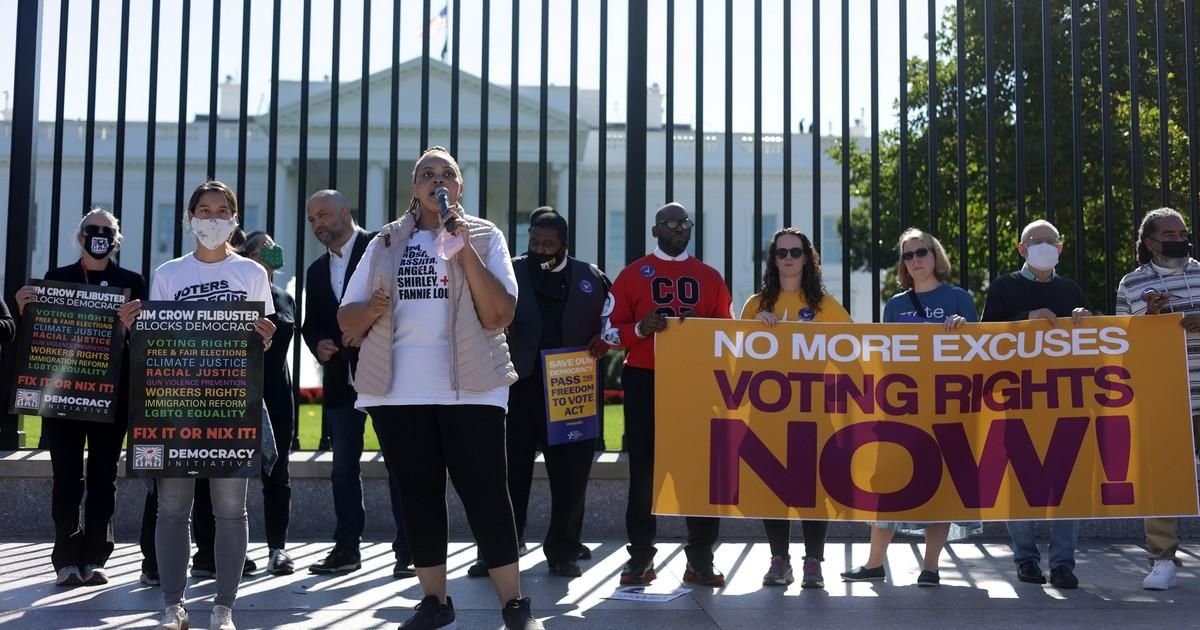
The following is adapted from oral testimony given Thursday before the United States House Committee on Administration.
As you know, the Supreme Court agreed to hear Moore v. Harper, a case in which some North Carolina legislators have asked the Court to embrace the so-called independent state legislature notion. This is the radical claim ("theory" is too generous a term) positing that the Constitution removes the normal checks on state legislatures when they regulate federal elections.
Even if the Court embraces this radical notion, Congress can thwart many of its worst consequences.
You've already heard that this claim is wrong. Constitutional text, American history, Supreme Court precedent, sound policy, and common sense all refute the idea.
I'll focus on the crushing consequences for American voters and our multiracial democracy if the Supreme Court turns this fringe notion into law. Here are four examples of what this idea could allow.
First, the notion would greenlight partisan gerrymandering of congressional districts.
- For instance, a state legislature could draw an extreme partisan gerrymander without consequence—something that state courts would otherwise strike down as illegal under the state constitution.
- That's just as backwards at it sounds: state lawmakers could violate their own constitutions.
- Redistricting commissions in up to nine states could become defunct.
- And fair representation could become more difficult, even impossible.
- That's because the Supreme Court already took federal constitutional protections off the table, ruling in the Rucho case that federal courts cannot stop partisan gerrymandering.
- The Court offered up state courts as the answer. But if state courts can't stop partisan gerrymandering, the tactic will thrive.
Second, the radical claim would remove constraints on voter suppression.
- For example, a legislature could eliminate early voting—even if it's guaranteed in the state constitution, and even if the people enacted it by ballot initiative.
- The state's governor would be unable to veto such a decision. And a state court would be powerless to stop it.
- Yes, voters could bring their case to federal court. But the Supreme Court has gutted the most powerful provisions of the Voting Rights Act and undercut other federal voter protections.
Third, the notion would create election chaos, disenfranchising voters and overwhelming election officials.
- The claim would undo hundreds of election laws enshrined in state constitutions, enacted by ballot initiative, and implemented through administrative rules.
- Policies enacted through direct democracy—like mail voting, same day registration, and even voter ID—could be wiped off the books for federal elections.
- Voters could be blocked from voting for candidates for federal office, even if they are eligible and were properly registered to vote.
- A range of other policies established in state constitutions, rather than legislation, would be voided. The right to cast a secret ballot, for instance, is guaranteed in 44 state constitutions.
- Election officials would be forced to administer a two-tiered system, with different policies for state and federal elections. It will be unclear which rules actually apply. And if election officials don't know what the law is, voters surely won't.
Fourth, the notion would remove critical checks against election interference and sabotage.
- The radical idea could enable legislatures to manipulate election outcomes. For instance, they could enact arbitrary rules for counting votes.
- The claim would invite legal challenges asking federal courts to throw out ballots cast in reliance on state constitutions, laws enacted by ballot initiative, or policies implemented by election officials.
To be clear, the independent state legislature claim is not a license to coup. Federal law prohibits state legislatures from overturning the results of an election. But the notion would open the door to antidemocratic shenanigans. And even failed efforts to manipulate elections erode trust—and, ultimately, participation—in our democracy.
Even if the Court embraces this radical notion, Congress can thwart many of its worst consequences. The Elections Clause, the very same constitutional provision that activists seek to weaponize against democracy, gives Congress the power to enhance and protect voting rights and ensure fair representation.
That's why, regardless of how the Supreme Court rules, I urge you to revisit and pass the Freedom to Vote: John R. Lewis Act. The bill would set national standards for voting access, prohibit partisan gerrymandering, and add federal protections against election interference and sabotage. This legislation is critically needed.
This content originally appeared on Common Dreams - Breaking News & Views for the Progressive Community and was authored by Eliza Sweren-Becker.
Eliza Sweren-Becker | Radio Free (2022-08-02T17:31:50+00:00) How the Radical ‘Independent State Legislature Theory’ Could Destroy US Democracy. Retrieved from https://www.radiofree.org/2022/08/02/how-the-radical-independent-state-legislature-theory-could-destroy-us-democracy/
Please log in to upload a file.
There are no updates yet.
Click the Upload button above to add an update.